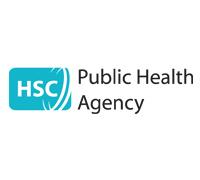Public Health Agency issues synthetic cannabinoids warning

The Public Health Agency’s (PHA’s) Drug and Alcohol Monitoring and Information System (DAMIS) has been receiving reports of people across Northern Ireland experiencing unpleasant and potentially dangerous side effects after smoking synthetic cannabinoids, with a number of users having been hospitalised.
The PHA is using its early warning system to raise awareness of the risks of this specific group of new emerging substances and is urging those who feel unwell after taking these drugs to seek medical help urgently.
Owen O’Neill, the PHA’s Lead on Drugs and Alcohol, urged people not to take risks with their health: “Synthetic cannabinoids are chemicals that are made to act like the active part of cannabis using a substance called tetrahydrocannabinol (THC).
“We have received reports of users of synthetic cannabinoids experiencing a range of very unpleasant symptoms including:
• Feeling ill
• Anxiety, panic and disorientation
• Breathing difficulties
• Collapsing and being unconscious
• Extreme agitation
• Hallucinations which have prompted them to try to harm themselves or others.
“While some more recently developed synthetic cannabinoids are legal to sell, it is illegal to sell them for human consumption and many have been banned under the Misuse of Drugs Act.
“Currently 107 different synthetic cannabinoids have been identified across Europe, and potency is hugely variable – they are often a lot stronger than cannabis and may even have completely different effects.
“The synthetic cannabinoids which have been noted in reports are most commonly named as ‘doob’, ‘sky high’/ ‘sky blue’ / ‘blue sky’ and ‘Trippy’.
“It is important to know that the description of contents on the package of any compound may bear no resemblance to the actual contents and people may experience acute mental and physical health problems when using synthetic cannabinoids as they have assumed that the dose to be taken is similar to that of cannabis, when the synthetic drug is actually much stronger.
“It is also hard to regulate intake when synthetic cannabinoids are smoked in pipes, bongs or vaporisers as these allow for a much larger dose of the drug to be absorbed in one go, therefore users may take too much and won’t have time to realise that the effects are not the same as cannabis.
“Mixing synthetic cannabinoids with alcohol or other drugs is also particularly dangerous as not enough is known about synthetic cannabinoids to predict how they will interact with other drugs.
“Therefore, the PHA strongly recommends that you do not take them. If you have taken drugs and are feeling unwell, please seek medical help urgently,” concluded Owen.
For further information on new psychoactive substances see http://www.publichealth.hscni.net/publications/new-psychoactive-substances-factsheet
The PHA’s advice on harm reduction for drug users can be found here www.bit.ly/drugharm and the PHA’s Know Your Limits website www.knowyourlimits.info
